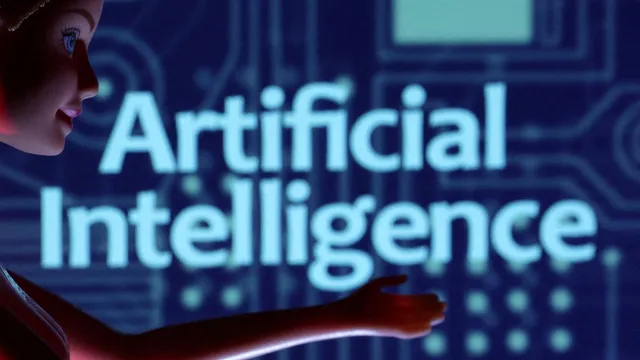- By Prateek Levi
- Thu, 31 Jul 2025 05:33 PM (IST)
- Source:JND
This year we have seen many tech giants laying off their workers and staff, citing reasons such as better management, efficiency, and functioning of their respective companies, or something to appease the shareholders that they are cutting unnecessary costs and preparing themselves for much broader changes. Many companies are now taking this step as a move to usher in this new world, which is constantly changing with AI. Mass layoffs are becoming a norm, and it would seem like artificial intelligence is the new thing that companies are moving towards, which is costing workers their jobs.
Well, that might be true in some sense, but the reality of it all is far more complicated than it seems.
A recent report by the career website Indeed sheds light on the fact that tech job postings are down by 36% compared to their earlier levels in 2020, with AI being one of the reasons but not the most obvious one.
ALSO RAED: Apple Brings Live Video Shopping Support To India Via 'Shop With A Specialist' Service
The timing of ChatGPT’s launch in late 2022 marked a turning point for the tech industry—but not just because of AI. Its arrival happened just as the hiring frenzy triggered by the pandemic was cooling off, making it tricky to pin today’s weak job market entirely on artificial intelligence.
The impact of AI-driven restructuring isn't limited to the U.S.—companies across the globe are following suit. In India, Tata Consultancy Services recently laid off 12,000 employees, amounting to 2% of its workforce. The move was part of what the company described as a transition to a “future-ready organisation” and a realignment effort focused on “deploying AI at scale for our clients and ourselves.”
Japan’s Recruit Holdings, the parent firm of Indeed and Glassdoor, echoed a similar shift in direction. It attributed the 1,300 job cuts across those platforms to changes tied to artificial intelligence.
Meanwhile, Microsoft has let go of roughly 15,000 workers this year—even as its financial performance remains strong. Addressing employees, CEO Satya Nadella acknowledged the emotional weight of the layoffs, saying they were “weighing heavily” on him. Still, he framed them as a step toward adapting the company’s purpose for the AI era.
Investors seem to be on board with this leaner strategy. Tech giants are under pressure to justify massive investments in AI infrastructure—from chips to data centres—and streamlining operations is one way to do it.
“It’s this sort of double-edged sword restructuring that I think a lot of tech giants are encountering in this age of AI, where they have to find the right balance between maintaining an appropriate headcount but also allowing artificial intelligence to come to the forefront,” explained Bryan Hayes, strategist at Zacks Investment Research.
Google has already committed an additional $10 billion, pushing its total capital expenditure to $85 billion. Microsoft is expected to outline similar spending in its upcoming earnings report.
According to Hayes, one thing is certain: Microsoft’s layoffs will improve its profit margin outlook for fiscal 2026. But for tech workers navigating this changing landscape, the future is less clear-cut.
“Will AI replace some of these jobs? Absolutely,” said Hayes. “But it’s also going to create a lot of jobs. Employees that are able to leverage artificial intelligence and help the companies innovate and create new products and services are going to be the ones that are in high demand.”
One company already ramping up AI hiring is Meta Platforms. The Facebook and Instagram parent is reportedly offering top-tier compensation to lure AI scientists from rivals, including OpenAI.
Data released by Indeed also suggests that while general tech hiring has slumped, AI-focused roles are faring better. “Machine-learning engineers—which is kind of the canonical AI job—those job postings are still noticeably above where they were pre-pandemic, though they’ve actually come down compared to their 2022 peak,” said Brendon Bernard, an economist at the Indeed Hiring Lab. “They’ve also been impacted by the cyclical ups and downs of the sector.”
Hiring has dropped significantly in AI-heavy regions like the Bay Area, Seattle, and Boston. But the downturn hasn’t hit all workers equally. Indeed’s data shows entry-level candidates have faced the brunt of the slowdown, while those with five or more years of experience are holding their ground.
Positions in marketing, HR, and admin support—roles often aided by generative AI tools—have seen some of the sharpest hiring declines. “The plunge in tech hiring started before the new AI age, but the shifting experience requirements are something that happened a bit more recently,” Bernard added.
ALSO READ: Vivo V60 Launch Teased: ZEISS Camera Revealed, Snapdragon 7 Gen 4 And More Expected
Microsoft’s own internal research sheds more light on the kinds of roles most susceptible to AI disruption. Jobs like translators, sales reps, writers, and customer support agents were found to be more vulnerable, while professions such as phlebotomists, nursing aides, hazardous materials handlers, and even embalmers appeared relatively insulated from AI’s current reach.

